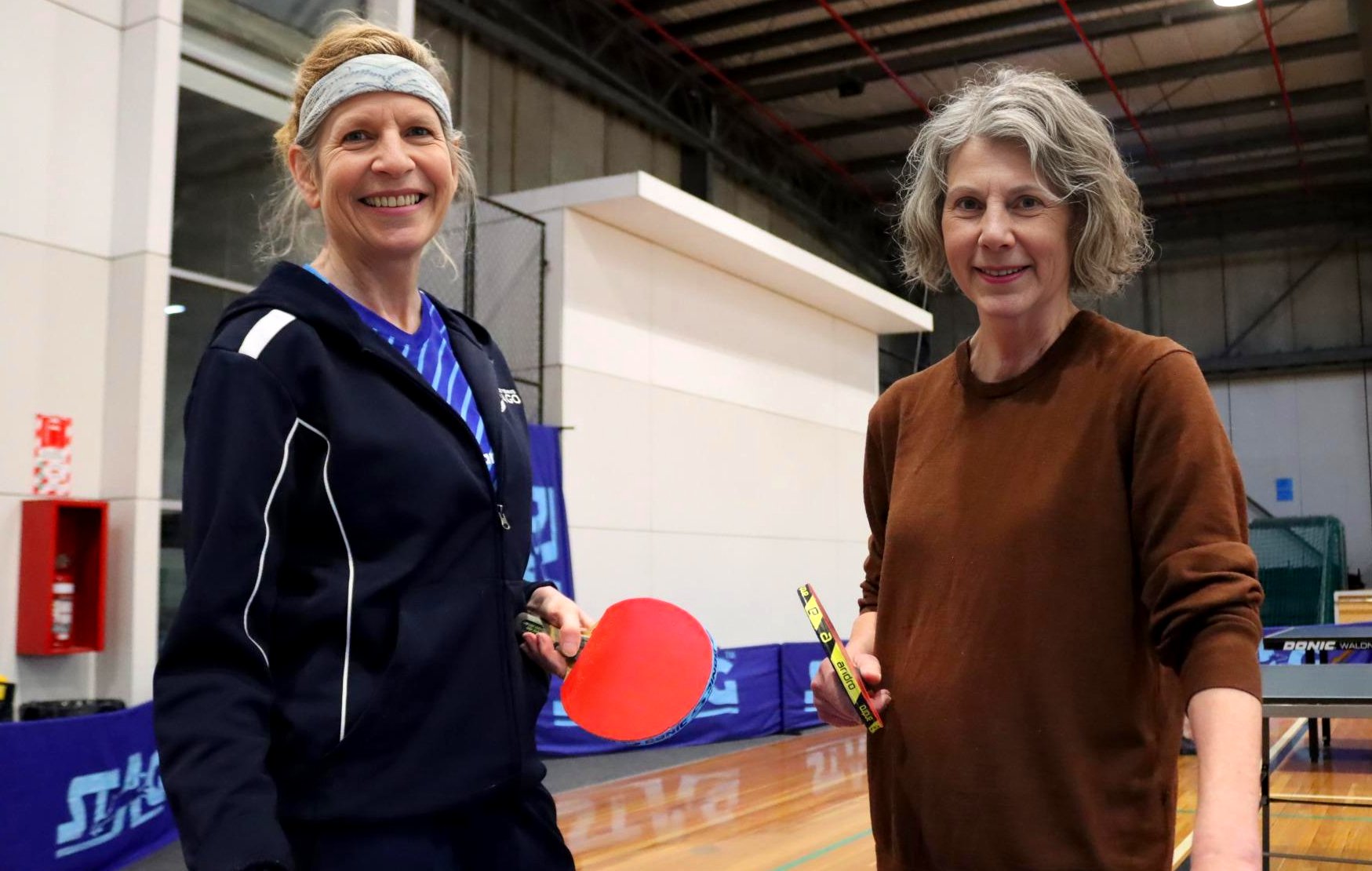Health
Ping Pong Parkinson Movement Boosts Health for Those with Parkinson’s

The Ping Pong Parkinson initiative is making strides in helping individuals cope with Parkinson’s disease, a progressive neurodegenerative disorder affecting motor function. This international movement focuses on the therapeutic benefits of table tennis, offering a supportive environment for participants to improve their physical and mental well-being.
Local Chapter Thrives in Dunedin
The Dunedin chapter of Ping Pong Parkinson has attracted over 30 members who meet weekly at the Edgar Centre. Each session begins with stretching and warm-up exercises before participants engage in spirited games of table tennis. Among the group’s standout players is Elizabeth Rowe, who recently achieved remarkable success at the Ping Pong Parkinson’s New Zealand national competition. Rowe secured a gold medal in the higher-mobility women’s singles category and a bronze medal in the higher-mobility combined doubles alongside fellow Dunedin player Ged Kennedy.
Rowe was diagnosed with Parkinson’s approximately seven years ago. Initially experiencing mild tremors, she sought medical advice, which led to her diagnosis. “It was a very mild tremor to start with,” she shared. “I have a bit of problems walking sometimes and I have lost a lot of my sense of smell, which is really weird.”
She joined the ping-pong group late last year, finding it to be both an enjoyable form of exercise and a way to connect with others facing similar challenges. “I find it really helpful in a general sense to do this and it is a really nice bunch of people as well,” Rowe said.
Researching the Benefits of Table Tennis
The group is led by Prof Liz Franz, a professor of neuroscience and psychology at the University of Otago. While she manages the group in her spare time, her academic work focuses on Parkinson’s research, examining its effects not only on movement but also on cognitive function and overall well-being.
Prof Franz’s research investigates whether training in table tennis can slow the progression of Parkinson’s symptoms and enhance cognitive abilities. The sport’s fast pace is particularly beneficial, as it can reduce stress and anxiety while fostering a more positive mindset. According to Prof Franz, the quick decision-making required in table tennis may help train the brain to respond more effectively to rapid tasks, which is crucial for individuals with Parkinson’s who often struggle with quick reactions.
The Dunedin chapter of Ping Pong Parkinson meets each Friday at the Edgar Centre. Those interested in joining can reach out via email at [email protected]. The movement continues to grow, demonstrating the power of sport in improving health and fostering community among those living with Parkinson’s disease.
-

 World3 months ago
World3 months agoTest Your Knowledge: Take the Herald’s Afternoon Quiz Today
-

 Sports3 months ago
Sports3 months agoPM Faces Backlash from Fans During Netball Trophy Ceremony
-

 Lifestyle3 months ago
Lifestyle3 months agoDunedin Designers Win Top Award at Hokonui Fashion Event
-

 Sports3 months ago
Sports3 months agoLiam Lawson Launches New Era for Racing Bulls with Strong Start
-

 Lifestyle3 months ago
Lifestyle3 months agoDisney Fan Reveals Dress Code Tips for Park Visitors
-

 Health3 months ago
Health3 months agoWalking Faster Offers Major Health Benefits for Older Adults
-

 World3 months ago
World3 months agoCoalition Forms to Preserve Māori Wards in Hawke’s Bay
-

 Politics3 months ago
Politics3 months agoScots Rally with Humor and Music to Protest Trump’s Visit
-

 Top Stories3 months ago
Top Stories3 months agoUK and India Finalize Trade Deal to Boost Economic Ties
-

 Entertainment3 months ago
Entertainment3 months agoExperience the Excitement of ‘Chief of War’ in Oʻahu
-

 World3 months ago
World3 months agoHuntly Begins Water Pipe Flushing to Resolve Brown Water Issue
-

 Science3 months ago
Science3 months agoNew Interactive Map Reveals Wairarapa Valley’s Geological Secrets









